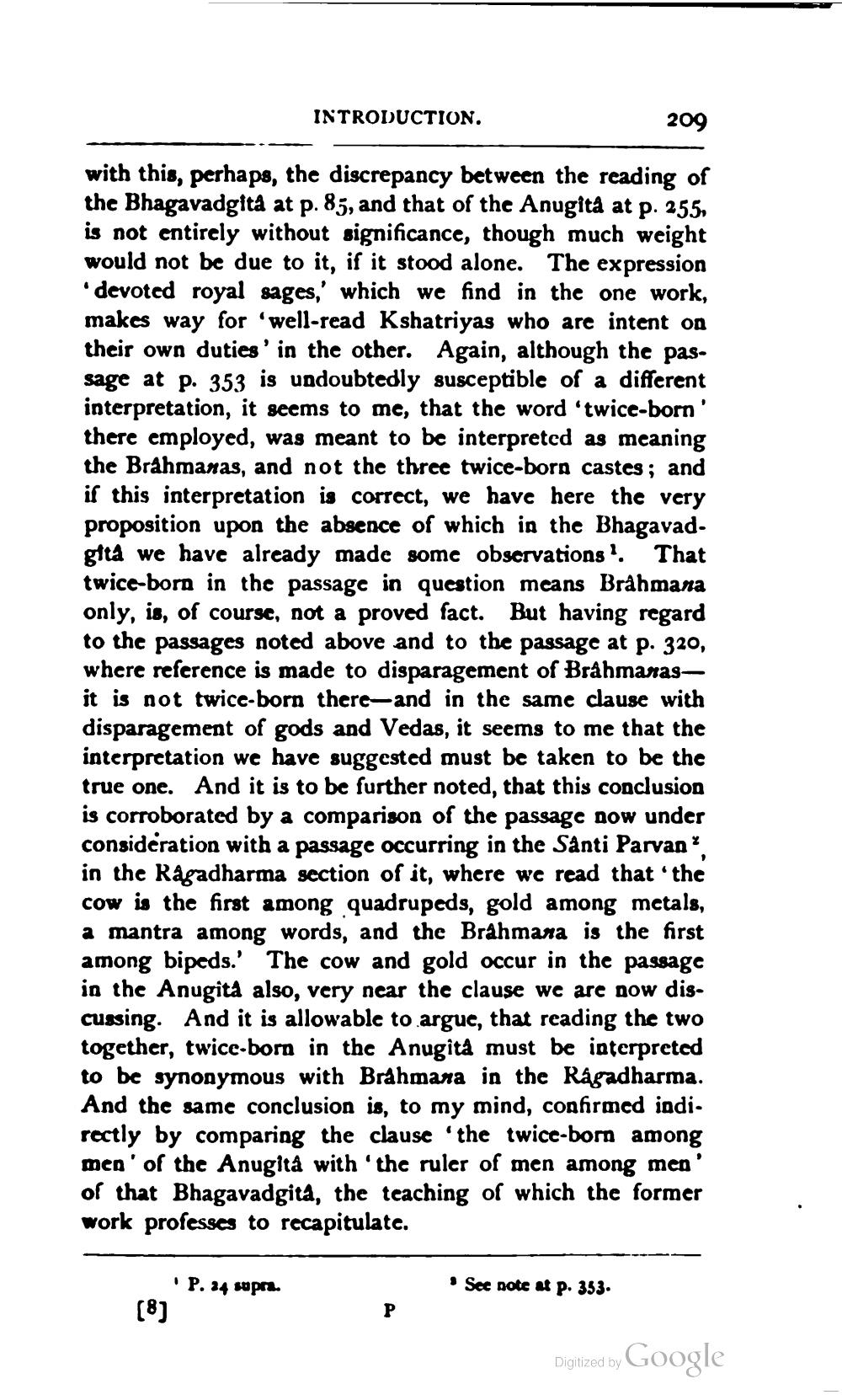________________
INTRODUCTION.
209
with this, perhaps, the discrepancy between the reading of the Bhagavadgita at p. 85, and that of the Anugita at p. 255, is not entirely without significance, though much weight would not be due to it, if it stood alone. The expression
devoted royal sages,' which we find in the one work, makes way for 'well-read Kshatriyas who are intent on their own duties' in the other. Again, although the passage at p. 353 is undoubtedly susceptible of a different interpretation, it seems to me, that the word 'twice-born' there employed, was meant to be interpreted as meaning the Brahmanas, and not the three twice-born castes; and if this interpretation is correct, we have here the very proposition upon the absence of which in the Bhagavad. gita we have already made some obscrvations'. That twice-born in the passage in question means Brahmana only, is, of course, not a proved fact. But having regard to the passages noted above and to the passage at p. 320, where reference is made to disparagement of Brahmanasit is not twice-born there and in the same clause with disparagement of gods and Vedas, it seems to me that the interpretation we have suggested must be taken to be the true one. And it is to be further noted, that this conclusion is corroborated by a comparison of the passage now under consideration with a passage occurring in the Santi Parvan, in the Rågadharma section of it, where we read that the cow is the first among quadrupeds, gold among metals, a mantra among words, and the Brahmana is the first among bipeds.' The cow and gold occur in the passage in the Anugita also, very near the clause we are now discussing. And it is allowable to argue, that reading the two together, twice-born in thc Anugitå must be interpreted to be synonymous with Brahmana in the Ragadharma. And the same conclusion is, to my mind, confirmed indi. roctly by comparing the clause 'the twice-bom among men' of the Anugitá with 'the ruler of men among mea of that Bhagavadgita, the teaching of which the former work professes to recapitulate.
· See note at p. 353.
· P. 34 sopra (8)
P
Digitized by Google




